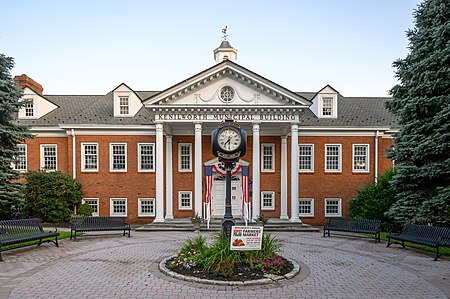Kenilworth, New Jersey
1907 establishments in New JerseyBorough form of New Jersey governmentBoroughs in Union County, New JerseyKenilworth, New JerseyPopulated places established in 1907 ... and 2 more
Use American English from May 2020Use mdy dates from March 2023

Kenilworth is a borough in Union County, in the U.S. state of New Jersey. As of the 2020 United States census, the borough's population was 8,427, an increase of 513 (+6.5%) from the 2010 census count of 7,914, which in turn reflected an increase of 239 (+3.1%) from the 7,675 counted in the 2000 census.Kenilworth was incorporated as a borough by an act of the New Jersey Legislature on May 13, 1907, from portions of Cranford and Union Township, based on the results of a referendum held on June 18, 1907.
Excerpt from the Wikipedia article Kenilworth, New Jersey (License: CC BY-SA 3.0, Authors, Images).Kenilworth, New Jersey
Jefferson Avenue,
Geographical coordinates (GPS) Address Nearby Places Show on map
Geographical coordinates (GPS)
| Latitude | Longitude |
|---|---|
| N 40.678089 ° | E -74.288114 ° |
Address
Jefferson Avenue 648
07033
New Jersey, United States
Open on Google Maps






